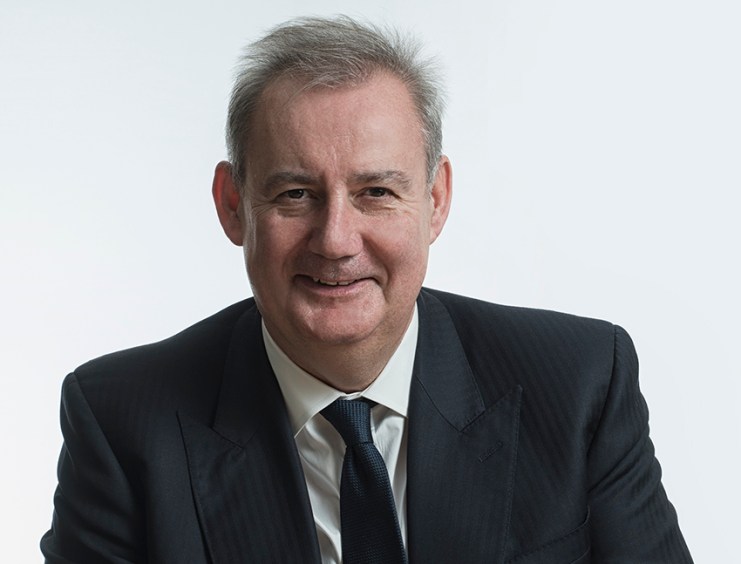Providing certainty in an uncertain world

“I think it’s the best unpaid job in the industry,” says Aon’s Dominic Christian of his side-hustle: Chair of ClimateWise, the cross-firm body which has dedicated itself to delivering a more sustainable insurance industry that delivers for customers and firms alike.
It’s no surprise that Dominic is speaking to us on his way to Cop-26 in Glasgow, as corporate leaders from across the world gather to tackle what seems increasingly to be the most pressing issue of our time.
“We brought together 40 leading industry organisations in insurance,” he says of the body, which he’s now chaired for five years.
“Initially it was about climate awareness, then it moved fairly fast to thinking around disclosure, and now it’s about playing a part in the transition, in terms of being a positive stimulus to the green economy to matters of resilience where insurance and the London market is very active.”
Dominic seems perfectly placed to be the man in charge, with an industry CV that would rival anybody in the Square Mile.
Starting out at a specialist broker in the mid-80s, he became a director of another in 1994. He then moved up through the ranks of Benfield Group, until it was bought by Aon in 2008. Since then he’s served as co-CEO of Aon Benfield and CEO of Aon UK, and now is the firm’s Global Chairman for Reinsurance Solutions. No doubt Dominic has forgotten more about the industry than many others know.
That career has given him a perspective on the shift towards putting climate right at the top of the business agenda.
“In 1987, the broker I was with was developing what was effectively London’s first flood model.
“So enlightened people in my business changed from being risk intermediaries and risk sharers to being risk interpreters,” he tells us. All that comes from the fact that climate change and the insurance industry are more indelibly linked than many other industries. In short – more extreme weather events means more damage and disruption, which means more need for insurance.
But despite that, there is a “protection gap” to this day – often in the developing world – between the potential damage that could be wrought by those more extreme, regular events, and the amount of cover that companies and individuals have. It’s a gap the insurance industry is desperate to close.
“As an industry we’ve got a massive role to play, elevating the understand of what we do to people. We are financial first responders, of course, but we’ve also built models across the world to try to understand climate perils. At Aon alone, we’ve got 120 models across 80 countries trying to make the world a bit more robust.”
“We’re in a privileged position – not just in the insurance industry, but in the wider financial services industry and the City of London – because we have these tools and capabilities and resources that if we use more effectively we can understand and solve some of the problems around climate change,” he says.
Aon has gone out of its way in recent years to emphasise the need to adapt to what is a changing world. Intense weather events, it calculates, have tallied nearly $5 trillion in economic damage in the 21st century alone – growing at an annual average rate of nearly 5 per cent.
And Aon too are pushing the envelope on what we think about as climate risk. In one report, the firm writes that the “effects of climate change are not solely tied to physical risk.”
The “stress on infrastructure and agriculture” by climate change “can trigger supply chain accessibility risks” as well as have geopolitical implications from migration to famine. Combine that with the fact that natural disasters don’t exist in a vacuum, often coming alongside societal events like Covid-19 or war, and you begin to realise the inter-connectedness required to ensure that if the worst happens, insurers are there to make sure the worst isn’t as bad as it might have been.
Getting ahead of those risks – and providing robust just-in-case insurance for those potential eventualities – is fundamentally at the heart of what the insurance industry does. After all, both insurance and re-insurance are built on providing certainty in an uncertain world.
Dominic puts forward one example as a sign of the industry using risk analysis to create products that allow for sustainable development – and provide a safety net in case climate change creates extreme events.
“In Africa we have an ARC – Africa Risk Capacity – and that consists of 33 African nations and provides insurance against drought and tropical cyclones for farmers,” he says. “It’s a case of pooling those national resources into one fund.”
“It’s paid out in Mozambique, in Senegal and Madagascar. That’s a real practical solution that solves real problems,” he says.
Another project Dominic is passionate about is around sustainable energy – helping to tackle climate change not just after its effects become apparent, but before.
“One of the risks in solar panels is around hailstones,” he says. Insurers then need to price up insurance against hailstorms in developing countries – giving areas that are thinking of moving on with the new, greener technology the impetus to install it, knowing that the risk is covered by insurers.
“There are lots of initiatives happening, it’s about scaling the activity. Hopefully Cop-26 is part of bringing people together, bringing action together, and delivering the outcomes we all want to see.”
With that Dominic is off into the green jungle of Glasgow’s Cop-26. Politicians will of course be hammering out great global agreements – but it’s obvious that companies like Aon, and initiatives like ClimateWise, are already showing the way in the private sector.